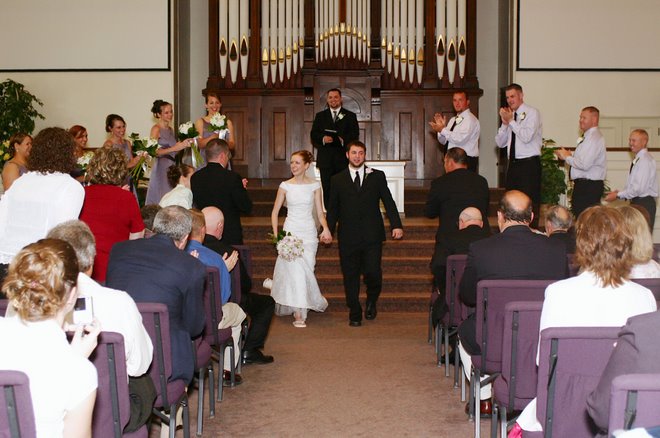The Protestant Reformation in the 16th Century was the result of a hot-headed monk (Martin Luther) who got a hold of Erasmus' translation of the Greek NT. Erasmus' translation was full of many naughty footnotes which exposed a few of the major scriptural abuses misuses of the Roman Catholic Church (RCC). No one challenged Erasmus because he, being what we would call a chicken, left the controversial information in the footnotes. The more Luther began devoting his life to reading the Bible (in its original languages... hmm...) the more he began to see how the RCC was reading the Bible in light of church tradition. The Bible, according to the RCC, could only be correctly interpreted when seen through the lens of Church Tradition. Church tradition was not to be considered wrong whenever it contradicted scripture, rather scripture was to yield to church tradition.
Many wrongly assume that Luther's problem with the RCC was how they were oppressing and misleading the poor and uninformed. The movie "Luther" very accurately portrays the circumstances of the reformation, however one could go away from that movie with a wrong impression. Luther was fighting against the RCC's abuses of the poor and uniformed, but there was much more to it than that. You see, if SCRIPTURE taught that one could buy their family members out of purgatory then Luther would have had no problem with this practice of the RCC. In fact, he would have plead with utmost passion for the poor and uniformed to give more of what little they had for the sake of their family members. Luther did and said many many offensive things that caused many people a lot of pain and depression (one of the most depressing things a person can hear is that they are going to Hell). So you see, Luther's battle with the RCC was not so much about how they abused and talked to ordinary common folk, rather his battle with them was how they abused and misused Scripture. The result of their misuse of Scripture was how they wrongly approached the poor and uniformed.
Luther's most influential and foundational plea was SOLA SCRIPTURA SOLA SCRIPTURA (SCRIPTURE ALONE SCRIPTURE ALONE). Without the plea of Sola Scriptura there would have been no reformation. Soli Deo Gloria (The Glory of God Alone) was the result of Sola Scriptura. If scripture would have taught any thing other other than Soli Deo Gloria then Luther would not have included it in the five Sola(s).
Sola Scriptura is what drove the Protestant Reformation. The RCC rejected Sola Scriptura by placing Church tradition on par with Scripture. Luther was convinced that all things were to be tested by the Scriptures. Nothing was to stand above the Scriptures. Only those ideas, doctrines, and practices which conform to Scripture were to be considered right, true, and good. Those ideas, doctrines, and practices which could not be aligned with Scripture were to be considered as false, misleading, and dangerous.
What things do we put on par with Scripture? What informs your ideas, desires, practices, and values? What is it that informs your interpretation? The RCC interpreted Scripture in light of Church tradition. What helps you interpret Scripture? It may not be church tradition, but does that necessarily mean that you are not prone to error. Church tradition is not the only thing that can skew ones interpretation. Do you interpret scripture in light of your experiences, feelings, desires? Do your experiences, feelings, and values hold more weight than does Scripture read in context? Does culture inform your interpretation of Scripture? I don't know how many people I have heard say, "I can't believe that! It goes against everything I have been taught my whole life." Does what you have been taught your whole life effect the way you interpret Scripture. O, be careful my friends. We are not to force our ideas on the Bible, rather the bible is to form our ideas. How many times have you heard something similar to this, "The Bible cannot mean this or that because this or that goes against what I have experienced." This statement reeks of Catholicism. The only difference is that experience rather than church tradition is that which is being put on par with the Bible.
Lord willing, in the next few entries, I will be writing about those things that most commonly hinder our ability to heed the call of Sola Scriptura.
Sola Scriptura, Sola Scriptura, Sola Scriptura. The Scriptures, The Scriptures, The Scriptures. We do not worship the Bible, but we trust the Bible to be the only infallible reliable way of coming to truth. The Bible is the word of God. Heed the reformation cry of Sola Scriptura. Reject your Catholic tendencies. Throw them to the wind and be conformed to what God has said in His word.
Thursday, November 23, 2006
Let us Cry With Luther--Sola Scriptura! Sola Scriptura!
Posted by
Jimmy Snowden
at
12:27 PM
![]()
![]()
Labels: Authority of Scripture, Context, Martin Luther, Roman Catholic Church, Scripture
Subscribe to:
Post Comments (Atom)



1 comment:
That's a great history lesson with lots of contemporary application.
How many times have you heard something similar to this, "The Bible cannot mean this or that because this or that goes against what I have experienced."
Reminds me of Bart Campolo's recent comments. Thanks for a very solid post.
Post a Comment